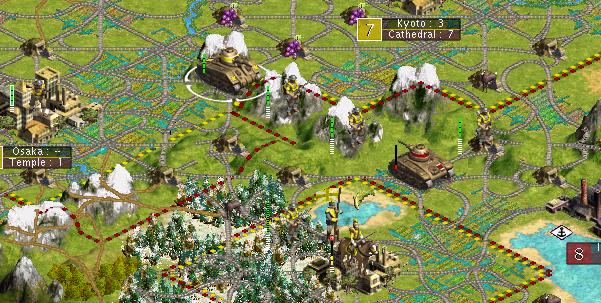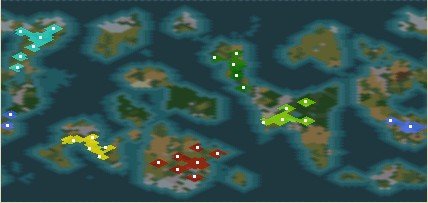In the replays, I noticed the differences in the start positions as well.
If you look at my game vs CB's game, you see the Aztecs are at 3 cites while the Japanese are at 7 in CB's game and then in my game the Aztecs are at 5 and the Japanese are at 5. These positions add up to the same totals fairly well which indicates to me that something random and slightly disruptive happened to the Aztecs in CBs early game while a similar event happened to the Japanese in my game. This could have been barbs from a hut versus a tech, or it could have been a lucky combat sequence that fell to barbarians near the Aztecs and stunted them in CBs game while the lucky outcome shifted against the Japanese in my game.
These civs are too far apart to have been influenced by any direct action by each other and since I did not make contact with the Japanese until circa 630BC, I interpret the differences to be the result of random outcomes from the RNG. Since the RNG seed is preserved it is like there is a fixed string of of numbers that come out of the RNG and depending on the sequence of who pops what the good results can fall to one guy while the bad results fall to the other guy.
One thing you have to watch out for is taking too much infor out of a difference of just one or two cities because the snap shot in time may not show you who or what is running around in the form of settlers etc. Your example of having two settllers running fast and getting ready to settle towns to take you up from 4 to 6 is a great illustration of this point.
I have also been playing a large number of opening sequences where I compare the automated AI functions that control the workers, settlers, and explore units. I have played about 40 different positions with 10 to 15 different permutations per start position. (This is a preview of the next website info pages that may get released at the end of this month

) Just running a stray barbarian into a square near these early automated units can distract them from their primary tasks for 5 to 7 turns and cause them to abandon lots of effort and shift near term priorities.
The minor variances due to the RNG outcomes add excitement to the games but they only serve to reinforce that nothing in the game is truly the same between two different game progressions after you have passed through 50 to 100 turns of active RNG events.






 Plus, I had never yet had a City Culture Victory, and it suited the storyline.
Plus, I had never yet had a City Culture Victory, and it suited the storyline. 






